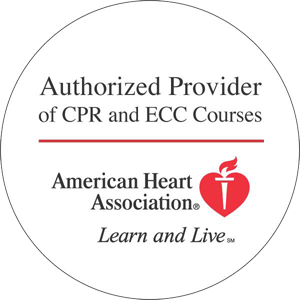Training as a Certified Nursing Assistant (CNA) is a huge deal. It’s the first step toward a career in the medical field, where you get to help people every day. It’s one of the most selfless, rewarding job paths you can follow. However, there are a few things to know before you begin, including what a CNA does, what requirements you need to start, and what CNA training entails. While CNA training is short, it’s intense—and there’s a checklist you need to meet first.
With years of experience working with CNA students in training, our team at HeartCert is well-versed in the ins and outs of this rewarding profession. Whether you’re starting your CNA training now or in the future, we’ll tell you what to know before you begin.

What Does a CNA Do?
By now, you probably already have a rough idea of what a CNA is and what they do for a career. If you don’t, this section is for you.
A CNA is a Certified Nursing Assistant (CNA) who helps with basic patient care in a hospital setting. This might include helping patients eat their food, bathing them, assisting them in the bathroom, getting them in and out of bed, helping them with walking, and more. Basically, a CNA is someone who helps patients who don’t have full mobility complete their daily tasks—especially if they are bedridden and unable to care for themselves.
Curious what an average day looks like? Check out our blog that shows what an average day as a CNA looks like here.
Should You Become a CNA?
If you love helping people, being a CNA could be a dream come true. However, there’s a lot more to it than just helping people. Oftentimes, the people you’re responsible for in the hospital need a lot of assistance with their day-to-day lives. Being a CNA means you’re juggling multiple patients at a time, treating people with care and respect, and putting up with both their good and bad days (even on the days when you’re not feeling like it).
The want to help people and care for them is the number one priority in being a CNA, but you should also be willing to put on a brave face and fully commit to the training. It’s not something you want to slack off on. When the day comes that you’re certified, you need to know crucial medical information and how to save your patient if a medical emergency happens.
Related Blog: Why Should I Become a CNA
What Are the Basic Requirements to Start CNA Training?
Unfortunately, not everyone can be a CNA unless they meet the basic requirements. To be able to start CNA training, you need to meet and complete the following:
- Be at least 16 years old when you start your training
- Get your diploma or GED (for some programs)
- Take CPR training classes and show proof of your certification (required by most employers)
- Complete background check and physical
Most CNA programs require CPR and/or BLS training before your clinical hours begin. If everything else lines up, but you don’t have this training complete, there are fast ways to complete the training. Here at HeartCert, we offer in-person training and virtual courses to get you started. If you’re eager to get started, don’t wait—schedule your class today before spots fill up.
What Does CNA Training Include?
Depending on whether you opt for full-time or part-time training, CNA courses usually only take a few weeks to complete, but can take upwards of a few months if you spread out the coursework. Here at HeartCert, we offer all-day classes to help you get certified in just a few weeks. Our CNA training courses and many others include:
- Blended learning style for optimum information retention
- Online training before in-person training
- Classroom learning with lab and clinical training
- Skills testing and supervised practicals
Related Blog: How Long Does CNA Training Take?
Hybrid Nursing and CNA Training in Minnesota
After understanding what it takes to be a CNA, you might be excited to get started. If you’re ready to get your CNA certification, HeartCert offers multiple hybrid courses to fit your schedule. Enroll today to save your spot before classes fill up, or click here to learn how to find the best CNA training program for you.
HeartCert is your trusted training partner for CPR, ACLS, PALS, EMR, First Aid, CNA, IV, EKG and more, throughout the United States.
Courses include CPR/AED/First Aid, Basic Life Support (BLS), Advanced Cardiac Life Support (ACLS), Pediatric Advanced Life Support (PALS), Certified Nursing Assistant training, IV training, EKG training, babysitter basics and more. Courses and certifications from both the American Heart Association and American Red Cross are available. We offer virtual courses and certifications, in all 50 states as well as in-person classes at our headquarters, HeartCert CPR Eagan and major cities in Iowa, Illinois, Michigan, Minnesota, Mississippi, Missouri, Nebraska, Pennsylvania, Texas and Wisconsin.









